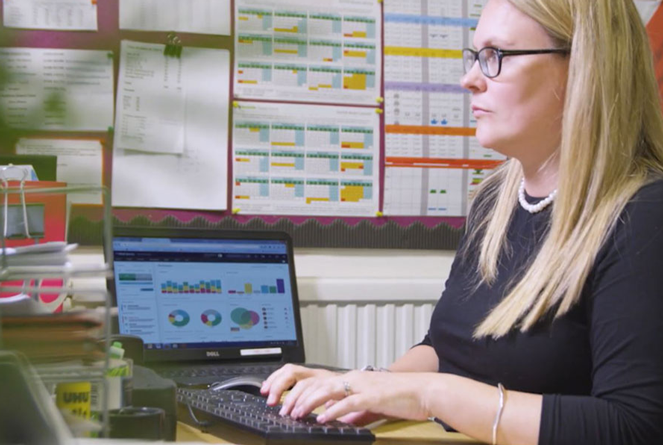In the dynamic landscape of education, fostering an inclusive and supportive environment for all staff is paramount. This includes understanding and addressing the unique challenges faced by neurodivergent employees and those grappling with mental health issues or disabilities. Managing such situations with empathy, care, and a strategic approach is essential for creating a workplace that thrives on diversity and inclusivity.
The importance of support
The first step in supporting neurodivergent staff and those dealing with mental health challenges is recognising the significance of their contributions. Neurodivergent individuals who may have conditions such as autism, ADHD, or dyslexia bring diverse perspectives and skills to the table. Their participation can also positively impact neurodivergence among pupils. Similarly, school staff facing mental health issues require a supportive culture that acknowledges their struggles and offers proper accommodations so they can thrive.
1. Provide neurodiversity training
Training forms the foundation of a supportive school culture for neurodivergence and mental health. Without effective Continuous Professional Development (CPD) and training managers must enhance their understanding of employee diagnoses, utilising resources like the National Autistic Society.
Recognising diverse needs, workplaces should accommodate neurodivergent individuals, addressing sensory issues in workspaces. Integrating such training supports employee well-being and enhances overall productivity through an inclusive environment. Beyond mere compliance, these initiatives actively contribute to a thriving and supportive school culture where individuals with diverse needs feel valued and understood, promoting an inclusive educational environment.
2. Keep your door open
To effectively support specific employees, cultivate a culture of open communication where staff feel comfortable discussing their neurodivergence or mental health challenges. Create a safe environment, regularly inviting your staff to communicate their struggles and needs with you. Displaying visual representations, such as Mind.org posters, contributes to an inclusive atmosphere, symbolises support for organisations, and creates an environment where employees feel understood and valued.
Most importantly, be sensitive - many people with neurodiverse needs are either in the process of pursuing an assessment or may not have a diagnosis. It is important to be sensitive to this and still recognise that individuals could have individual needs which are not diagnosed and will require accommodation in the workplace.
3. Refer them to Occupational Health
When a school becomes aware of an employee's neurodivergence or mental health concerns, the initial response should involve referring them to the occupational health department to produce an occupational health referral. Occupational health professionals can conduct assessments to understand the staff member’s needs better and recommend appropriate adjustments.
4. Review Occupational Health reports
Upon receiving the occupational health report, school leaders should carefully review the recommendations and work collaboratively with the employee to determine reasonable adjustments.
5. Make reasonable adjustments
Consider modifications to the working environment, flexible working hours, or additional support structures when implementing reasonable adjustments. Maintaining regular check-ins with your employees is crucial to ensure there is an appropriate level of support and accommodation throughout this process.
Individuals with Autism and ADHD often experience sensory processing difficulties that require specific accommodations. This might involve allocating designated time for individuals to "decompress," emphasising the importance of ensuring employees take their allocated breaks. Acknowledging and addressing sensory difficulties is particularly vital, as these challenges are explicitly listed in the DSM-5 diagnostic criteria for ASD.
6. Encourage self-help
Empowering your school staff to take an active role in managing their neurodivergence or mental health is crucial. As an employer, you may wish to encourage open communication, provide resources, and create a supportive atmosphere where employees feel comfortable seeking help. Initiatives such as mental health awareness workshops can contribute to a culture of understanding and compassion.
7. Access to Work Scheme
The Access to Work scheme, a government initiative, provides practical support to individuals with disabilities or health conditions. School leaders should actively explore how this scheme can benefit neurodivergent employees or those facing mental health challenges within the educational setting.
8. Employee Assistance Program
Taking a proactive approach to promote mental health and well-being involves implementing an Employee Assistance Program (EAP). EAPs provide confidential counselling and support services, offering employees a secure space to discuss concerns and seek guidance. Additionally, there are free online services, such as educationsupport.org support resources for employees.
The sensitive matter of ill health capability grounds
In certain situations, despite receiving extensive support, an employee's condition may deteriorate to a level where their capacity to fulfil their role is substantially compromised. In such cases, contemplating dismissal on ill health capability grounds becomes a necessary consideration, demanding utmost sensitivity in approach. Paradoxically, this measure can be seen as a supportive intervention, acknowledging that the employee may need to cease working temporarily to focus on their mental health and allocate the necessary time for recovery. For instance, conditions like Autism may present a scenario where the employee's commitment to perfection may compel them to stay at work, even though their actual well-being requires a period of recuperation at home. This underscores the importance of recognising the need for adequate time and space to ensure the individual's overall well-being.
Why dismissal on ill health capability grounds?
Dismissal in these circumstances is not punitive; rather, it is a supportive measure. It allows the employee to access provisions for services and ensures that facilities responsible for those provisions are aware of the employee's inability to work. This process is designed to safeguard the employee's well-being while maintaining the integrity and functionality of the educational institution.
Navigating the human side of leadership
Throughout this journey, it's imperative to recognise the human side of leadership. School leaders must approach these situations with empathy, understanding that no two neurodiverse individuals are the same, everyone is born different, and everyone’s journeys are unique. Regular check-ins, open communication channels, and creating a culture of acceptance contribute significantly to creating a workplace where everyone feels valued and supported.
In conclusion
Supporting neurodivergent employees and those facing mental health challenges in the education sector is not just a legal obligation; it is morally imperative. By implementing the right support mechanisms and training programmes, fostering a culture of empathy, and understanding the delicate balance of dismissal on ill health capability grounds, school leaders can create an environment where every staff member can thrive. Encouraging employees to be open with pupils can also highlight positive role models for the pupils and show them that even work itself is achievable. Embracing diversity and fostering a mentally healthy workplace benefits the individual employees and enriches the educational community as a whole.
Empower your school's HR success
Connect with our education HR experts, who celebrate a collective 200 years of experience, to support your school's diverse workforce.
We offer comprehensive HR software and HR guidance tailored to help your school thrive.
Book a free consultation with a dedicated member of our team, and let us navigate the intricacies of school HR together.


/Primary%20school%20.jpg?width=2000&name=Primary%20school%20.jpg)








.png?width=940&height=788&name=Lingfield%20College%20Case%20Study%20(5).png)
-1.png?width=1000&height=833&name=National%20Association%20of%20Head%20Teachers%20(3)-1.png)
-3.png?width=1080&height=1080&name=Untitled%20design%20(10)-3.png)







